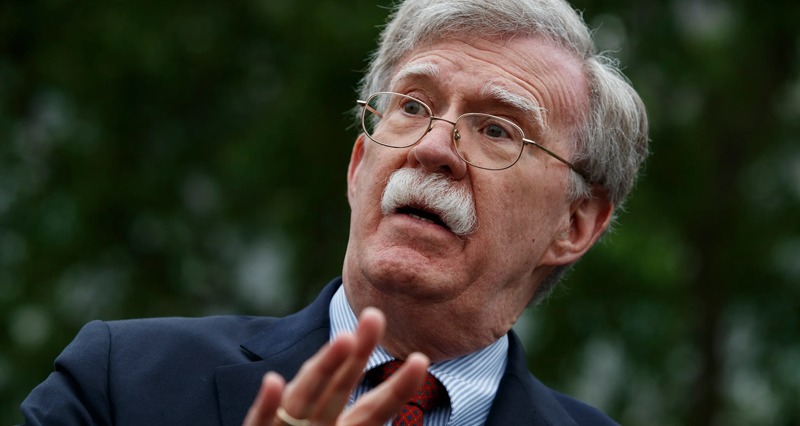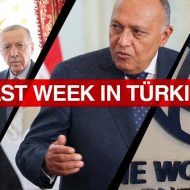Yemen’s Ansar Allah has officially claimed responsibility for the drone attacks against ARAMCO oil facilities which resulted in Saudi Arabia’s oil production being cut in half. Nonetheless, Secretary of State Mike Pompeo, President Donald Trump and Saudi officials are claiming that Iran was actually the one responsible for the attack.
First, allow me to explain why I am referring to Ansar Allah rather than the Houthis as many other articles have.
The war in Yemen was launched based on the pretext of opposition to Yemen’s Houthis in 2015, yet in reality, the Saudi coalition attacked all Yemeni people, regardless of their political affiliation, sect, religion, sex, age or tribe. As a result, nearly all of Yemen has joined forces with the Army in order to defend themselves against their common enemy. This force has taken the name Ansar Allah.
It would be a big mistake to say that the Houthis are the only force in Yemen fighting back against the Saudi coalition.
Without even waiting for any evidence to prove that Iran was responsible for the attacks, American politicians began to demand that the administration retaliate by destroying Iranian oil facilities.
Any military expert can tell you that in the modern world it would be very easy to investigate and find out the source of attacks, especially in this case. If there were any documents to prove their claims, American officials would certainly have shown them to the media.
After all, American military satellites are covering the area 24/7, all they would need to do is check their cameras to see where the attack came from. Moreover, experts could examine the remains and pinpoint from where and how it was carried out.
Military experts know this, as do the Iranians, which is why they wouldn’t risk exposing themselves to their enemies in such an upfront way. Iran knows better than to give Washington an excuse to escalate things further and potentially give them a pretext for war.
Some Saudi officials have used the testimony of a couple of Kuwaiti shepherds who claim they saw drones flying over Kuwait from Iraq in order to argue that it was Iran’s allies in Iraq that launched the attack.
The Americans officially deny that there is any truth to these claims.
The question naturally arises: why do the Americans and Saudis insist on blaming forces other than Ansar Allah, despite that they are the ones claiming responsibility for the attacks?
While there are dozens of possible explanations, one of the most obvious is that the Americans and Saudis simply don’t want to accept that the Yemenis are the ones who launched the drone.
Despite that Trump recently fired John Bolton, his administration’s most prominent anti-Iranian war hawk, Washington wants to make it clear to the powerful lobbies who supported Bolton that hard-line policies against Iran won’t change as a result of his ouster.

Washington hoped that After 16 months of unprecedented sanctions the Iranians would break down, surrender and sit at the negotiation table; but things didn’t go according to plan.
About four months ago, Washington planned to enact a military siege against Iran to completely stop oil exports and break the country’s leadership, but Tehran pre-empted them by shifting to a more aggressive policy and pushing the Americans away from their shores. They were able to make other countries in the world understand that if a conflict did break out, it would affect the entire world, not just the US and Iran.
While some think of negotiations as sit down talks between diplomats, the truth is that all of the moves Iran is currently making are a kind of proxy negotiation.
Participants in any negotiation need to consider the cards they are holding before making any plays; naturally, a good player waits until they believe they have the stronger hand (or at least enough to bargain with) before putting their cards on the table.
While the Americans and Europeans have played every card they have against Iran over the past sixteen months, Iran has been biding its time and waiting to make the right move.
It seems that the Americans and Europeans are only now coming to realize the severity of the mistake they made.
The Europeans are trying to convince the Iranians to allow them to reduce the commitments they already agreed to in the JCPOA, while the Americans are making sure that Tehran understands that a military option is still on the table.
It is undeniable that the US is a superpower and has the capacity to attack Iran– at the same time, it is clear that there is a reason why Washington hasn’t done so. The US might be able to start a war, but it is quite possible they would be unable to end it.
They know that Iran has managed to build a powerful defense system which would do incredible damage to anyone who tries to attack them. If Ansar Allah was able to shut down half of Saudi Arabia’s oil production, Iran would very likely be able to shut down all of it.
Perhaps even more importantly, Iran has been able to build a chain of relations with different allies in the region, a region which currently hosts around 80,000 American soldiers, all of which could become easy targets for an Iranian coalition.
The reason Trump failed to retaliate against Tehran for downing an American drone earlier in the year was not because he was concerned about the death of some 150 Iranians as he claimed, but rather because he was concerned about the possible deaths of some of these 80,000 American soldiers, as well as the possible impact on the global economy.
Another reason the Americans and the Saudis refuse to admit that Ansar Allah was responsible for the attacks is that the Saudis have been at war with them since 2015 and have dumped a massive amount of resources attempting to crush their resistance. It would look very bad if the Yemenis suddenly developed the ability to launch a strike targeting the very heart of their country.
This would be seen as a total failure for the Saudi coalition and might cause the Saudi people to start asking questions about whether or not the ongoing war is winnable.
Saudi Arabia spent hundreds of billions of dollars buying the most modern weapons the US produces, yet these weapons were not even able to defend them from a simple drone attack.
What would happen if Iran itself actually initiated an attack against Saudi Arabia?
The Saudi people are even having trouble believing the government’s claim that Iran is providing the Yemeni army with small munitions, let alone drones.
Iran has never denied that it willing to do whatever it can to help the Yemeni people in their fight against Saudi Arabia, but because of the siege and blockade of Yemen, it is nearly impossible for Iran to send any military supplies, and definitely impossible to supply them with drones or missiles capable of striking a target a thousand kilometers away.
The only possibility of Iranian involvement would be if Tehran had provided the Yemeni army with the information and technology needed to produce these weapons themselves.
Of course, the attacks are also a huge failure for the missile defense systems the Americans claim are the “most sophisticated in the world.” The drones were able to fly hundreds of kilometers over Saudi Arabia without being recognized, a fact which might make countries think twice before they purchase defense systems from the US.
While the Americans and Saudis have many reasons to deny that the attacks were carried out wholly within the context of their brutal war in Yemen, it is clear that Riyadh is simply reaping the seeds sown in 2015.
Despite who they accuse in the media, they know that the only way to stop these kinds of attacks is by ending the war in Yemen.









Leave a Reply